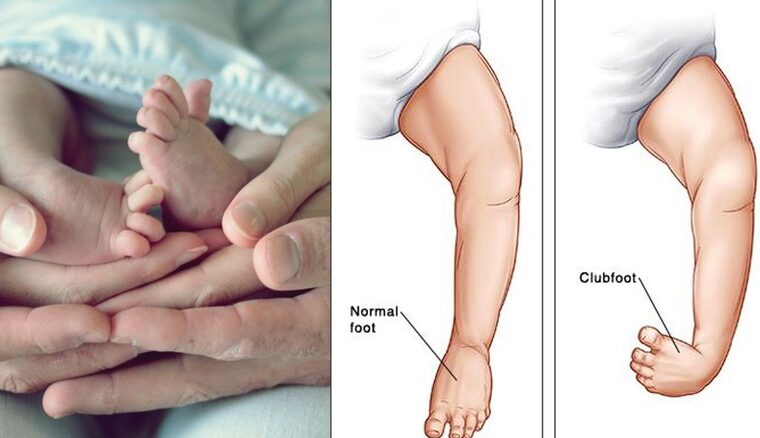Clubfoot is a congenital condition in which a baby’s foot is twisted out of its normal position. This deformity affects mobility and, if untreated, can lead to lifelong difficulties in walking. While the exact cause remains unknown, several factors contribute to the development of clubfoot. Understanding these factors can help in early detection and treatment. Dr. Sameer Desai, Pediatric Orthopedic Surgeon in Pune, specializes in diagnosing and treating clubfoot effectively.
1. Family History:
Genetics play a crucial role in the occurrence of clubfoot. If one or both parents have had clubfoot, there is an increased likelihood of the condition being passed down to their child. Similarly, siblings of affected children are at a higher risk. Research suggests that multiple genes may be involved, making clubfoot a hereditary condition.
2. Congenital Conditions:
Clubfoot is often associated with other congenital disorders, such as spina bifida. Certain neuromuscular conditions affect the development of muscles, bones, and tissues, leading to clubfoot. In such cases, the foot deformity is usually more severe and may require extensive treatment.
3. Smoking During Pregnancy:
Maternal smoking during pregnancy has been linked to an increased risk of clubfoot. Harmful chemicals in tobacco can interfere with fetal development, affecting muscles and ligaments in the feet. Studies suggest that women who smoke during pregnancy are more likely to have babies with clubfoot than non-smokers.
4. Low Amniotic Fluid:
Amniotic fluid plays a vital role in fetal development by cushioning and protecting the baby. Low levels of amniotic fluid (oligohydramnios) can restrict fetal movement, leading to abnormal positioning of the feet. This lack of movement may contribute to the development of clubfoot before birth.
Conclusion:
Clubfoot is a treatable condition when diagnosed early. Understanding the risk factors, such as genetics, congenital disorders, maternal smoking, and low amniotic fluid, can help parents and healthcare providers take necessary precautions. With proper medical intervention, including stretching exercises, casting, and in some cases, surgery, children with clubfoot can lead active, healthy lives. If you have concerns about clubfoot, consult Dr. Sameer Desai, Pediatric Orthopedic Surgeon in Pune, for the best possible guidance and treatment.


